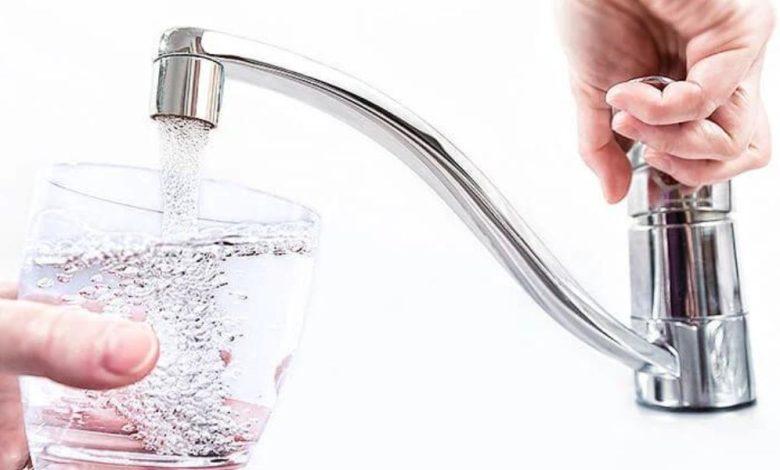Is Tap Water Healthy? Unveiling
Is Tap Water Healthy? Unveiling the Truth Behind Your Daily Hydration

Introduction
Is Tap Water Healthy The healthiness of tap water is a crucial consideration for individuals seeking a reliable and accessible source of hydration. In this exploration, we delve into the factors that determine the healthiness of tap water, addressing common concerns, understanding its benefits, and offering insights to help you make informed decisions about the water you consume daily ist leitungswasser gesund.
Many people often question whether tap water is healthy for daily consumption, and the truth may surprise you. While some may argue that tap water contains contaminants and chemicals, the reality is that in most developed countries, tap water undergoes rigorous testing and purification processes to ensure its safety. In fact, studies have shown that in many cases, tap water can be just as clean, if not cleaner, than bottled water due to strict regulatory standards.
In addition to its cleanliness, tap water also contains essential minerals like calcium and magnesium which are beneficial for our health. Furthermore, choosing tap water over bottled options can significantly reduce plastic waste and environmental impact. However, it’s important to note that in certain regions where contamination or outdated infrastructure may pose a risk, installing a quality water filter system could provide added assurance of purity.
In conclusion, when evaluating the healthfulness of tap water for your daily hydration needs Unveiling the Truth Behind Your Y.
1. Water as a Vital Nutrient
Water is an essential nutrient that plays a fundamental role in maintaining bodily functions:
- Hydration: Staying adequately hydrated supports digestion, circulation, and temperature regulation.
- Nutrient Transport: Water facilitates the transport of nutrients throughout the body.
- Detoxification: Proper hydration aids in the elimination of waste and toxins from the body.
2. The Safety of Tap Water
Municipal tap water in the United States is subject to stringent regulations and testing protocols:
- Water Treatment: Treatment processes, including filtration and disinfection, ensure the removal of contaminants.
- Regulatory Standards: The Environmental Protection Agency (EPA) establishes and enforces water quality standards to safeguard public health.
- Testing: Regular testing for various contaminants, including bacteria, chemicals, and heavy metals, is conducted to maintain water safety.
3. Common Concerns About Tap Water
Addressing common concerns helps evaluate the healthiness of tap water:
- Chlorine: While used for disinfection, chlorine levels in tap water are regulated to be safe for consumption.
- Lead: Strict standards regulate lead levels in tap water. If concerns arise, testing and appropriate remediation measures can be implemented.
- Microorganisms: Treatment processes effectively eliminate harmful microorganisms, ensuring the safety of tap water.
4. Benefits of Tap Water for Health
Choosing tap water offers several health benefits:
- Fluoride Content: Many municipal water supplies contain fluoride, which promotes dental health by preventing tooth decay.
- Mineral Contribution: Tap water can be a source of essential minerals like calcium and magnesium, supporting overall health.
- Calorie-Free Hydration: Opting for tap water as the primary source of hydration is a calorie-free and economical choice.
5. Potential Challenges: Hard Water and Contaminant Variation
Understanding challenges helps in mitigating potential issues:
- Hard Water: While not harmful, hard water may lead to scale buildup in appliances. Water softeners can address this concern.
- Contaminant Variation: The presence of contaminants may vary based on regional factors. Regular testing provides insights into local water quality.
6. Improving Tap Water Quality
Enhancing tap water quality involves simple measures:
- Filtration: Using water filters can improve taste and odor by removing certain substances while retaining essential minerals.
- Plumbing Maintenance: Regular maintenance of household plumbing systems prevents the introduction of contaminants.
Conclusion
In conclusion, tap water, when sourced from a municipal supply adhering to regulatory standards, is a healthy and reliable option for hydration. Addressing common concerns, understanding the benefits, and taking simple measures to enhance water quality ensure that your tap water contributes positively to your overall health. As you turn on your tap, you can trust that you’re making a health-conscious choice for your daily hydration needs.
Custom Message:
Get Access Now: https://bit.ly/J_Umma
FAQs (Frequently Asked Questions)
- Is tap water as healthy as bottled water?
- In many cases, tap water is as healthy as or even healthier than bottled water. Municipal tap water is subject to strict regulations, and regular testing ensures its safety.
- Can tap water contribute to my daily mineral intake?
- Yes, tap water can contribute to your daily mineral intake, providing essential elements like calcium and magnesium that support overall health.
- Should I be concerned about the taste of tap water affecting its healthiness?
- While taste preferences vary, the taste of tap water is not indicative of its healthiness. Filtration systems can be used to improve taste by removing certain compounds without compromising safety.




